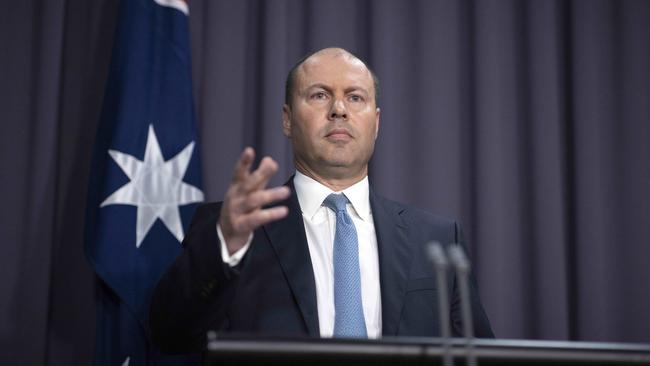Wrong lessons in Covid response

The easing of monetary policy, provision of concessional business loans and relaxation of bank credit conditions were obviously necessary palliatives for the lockdowns, as were some of the federal and state fiscal responses, including various tax relief measures and wage subsidies under JobKeeper.
However, these responses are best thought of as a response to a natural disaster or a war that destroys part of the capital stock, like roads and bridges, not as a reaction to a fluctuation in the business cycle.
There was clearly an overreaction on the fiscal side that included overly generous JobKeeper and welfare payments, as well as commitments to extravagant state infrastructure spending not based on rigorous cost-benefit analysis, most of which is yet to roll out.
JobKeeper maintained employment links and preserved human capital (the knowledge and skills of the workforce), and was a worthy fiscal initiative in principle if not in scale. As the centrepiece of the initial fiscal response, it kept recorded unemployment down.
But it was not technically Keynesian because it targeted the production, or supply, side of the economy, not the spending or demand side, which is the sine qua non of Keynesian economics.
It therefore would be erroneous to credit Keynesian economics for the quick recovery as the recovery has essentially emanated from the revived provision of goods and services as restrictions have been lifted.
Fiscal excess stemmed from an ill-advised “whatever it takes” mindset, speciously based on assumptions the health crisis was a once-in-a-century event as bad as the Spanish flu, and that employment would not automatically spring back once social distancing restrictions were lifted.
Many will nonetheless credit all elements of the fiscal response, not the lifting of restrictions and the supply-side measures, for the unexpected economic rebound and use it to justify more activist fiscal policy in future.
However, if fiscal policy resumes the discredited finetuning role it played before that role was taken on fully by central banks it would further handicap future prosperity. Turning the fiscal tap on (and less often off) at the drop of a hat (or the All Ordinaries Index) would create greater business uncertainty and would be subject to lags that would impede its effectiveness.
What we know for sure is that the pandemic has left a legacy of huge fiscal deficits and rising public debt. These are already doing short-term damage via a stronger exchange rate stemming from foreign take-up of government bonds but also will have long-lasting economic consequences.
The chances are that the next crisis, health or otherwise, is likelier to occur within a decade or sooner, not in 100 years, and well before the fiscal accounts are properly repaired.
The negative economic repercussions of the virus-related budget deficits will play out for a long time and act as a drag on economic growth. Consistent with numerous studies on the impact of a rise in public debt on growth, the more than 20 per cent rise in its federal public debt to GDP ratio from 2018-19 to 2023-24 could shave 0.5 per cent off annual economic growth in future.
It’s true that interest rates on recently issued public debt instruments are historically low, but this will not be the case when public debt has to be rolled over. Commentary on public debt also invariably ignores that rolling over debt soaks up funds that could be used for more productive purposes, further limiting the economic welfare of future generations.
Tony Makin is a professor of economics at Griffith University and author of The Limits of Fiscal Policy (Palgrave).


While thankfully relatively few Australians fell ill from COVID-19 this year, the economy wasn’t so lucky, suffering its worst reversal since the Depression because of government-mandated lockdowns. The recession was like no other in Australia and its abnormality needs highlighting. Treating it like previous recessions means the wrong policy lessons will be drawn and risks the reckless use of fiscal policy in future.